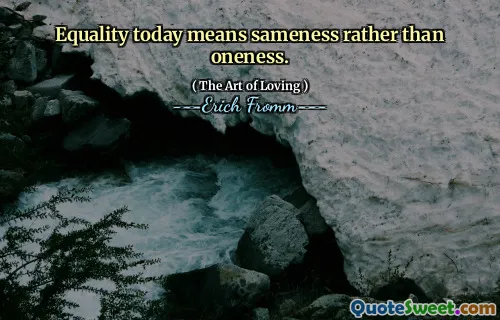
The faculty to think objectively is reason; the emotional attitude behind reason is that of humility. To be objective, to use one's reason, is possible only if one has achieved an attitude of humility, if one has emerged from the dreams of omniscience and omnipotence which one has as a child.
Understandably, this quote from Erich Fromm emphasizes the importance of humility in the process of rational thinking. Human beings, especially in childhood, often harbor fantasies of omniscience and omnipotence, believing they have control over all aspects of life and knowledge. However, as one matures and engages in genuine reasoning, it becomes clear that such fantasies are illusions, and a more accurate, humble perspective is necessary for true understanding.
The capacity for objective thinking relies heavily on this humility, which acts as a grounding force that allows individuals to step back from their egocentric views and biases. When someone acknowledges their limitations and approaches a situation with an open mind, they can better evaluate information without the distortions of ego or emotional overconfidence. This humility does not diminish intelligence; instead, it enhances it by fostering curiosity, openness, and a willingness to accept uncertainty.
Moreover, the relationship between reason and emotion is nuanced here. Emotions can cloud judgment, but an emotional attitude of humility can promote clear and fair reasoning. It suggests that humility isn't just a passive trait but a vital component of rational inquiry, encouraging continuous learning and self-awareness.
In the larger scope, this idea challenges the arrogance sometimes associated with knowledge and underscores the importance of humility not only for personal growth but also for genuine understanding within society. Recognizing our limits is fundamental for meaningful dialogue, problem-solving, and the pursuit of truth, making humility an essential virtue within the realm of reason.








